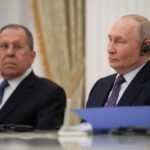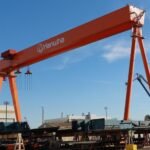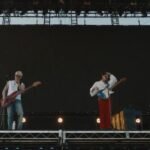The Kospi index edged down 0.16% to close at 2,857.76 on Monday
South Korean individual investors have bet strongly on domestic stock price falls, in contrast to foreign investors’ aggressive buying that sent the benchmark Kospi index to its highest level in two and a half years last week.
Last month, individual investors’ net purchase of the leveraged and inverse exchange-traded fund betting against the domestic stock market hit the largest-ever amount in one and a half years.
According to the Korea Exchange on Monday, the KODEX 200 Futures Inverse 2X ETF was the most popular ETF in the Kospi market among retail investors last month. They bought a net 437.0 billion won of the ETF that profits from the inverse performance of the Kospi 200 futures index by twice as much as the index’s decline.
That marked their largest-ever monthly net purchase of the inverse ETF since their net purchase of 710.8 billion won of the ETF in January 2023. The fund was launched by Samsung Asset Management in 2016.
Retail investors poured 119.4 billion won into the inverse ETF on July 5 alone, when the Kospi rallied to its highest level in two and a half years after Samsung Electronics Co. delivered its stronger-than-expected second-quarter earnings in a pre-announcement.
They tended to bet against the market when it was on an upward spiral. In January of last year, Korean individual investors bet a net 710.8 billion won in the inverse ETF, despite an 8.4% rise in the Kospi index the same month.
An asset management company head said individual investors’ bet against the domestic stock market reflects their short-term investment trends.
FOREIGN NET BUYING AT RECORD HIGH
By contrast, foreign investors purchased a net 22.89 trillion won worth of stocks on the Korea Exchange in the first half of this year, according to the Financial Supervisory Service.
That recorded their biggest-ever purchases of Korean stocks since the regulatory started compiling the relevant data in 2998.
The figure was based on cleared transactions and excluded the ETF, equity-linked warrants and exchange-traded notes. That compared with domestic individual investors’ net selling of 7.38 trillion won of local stocks during the same period.
Samsung Electronics flagged a more than 15-fold increase in its second-quarter operating profit in 2024
On the Kospi market, foreign ownership exceeded 36% for the first time in three years, standing at 36.04% as of July 5.
Their ownership ratio matched the 36.02% touched in April 2021, when the Kospi index was in a bull run toward a record high of 3,200 and was up 4 percentage points from 32.16% in June of last year.
They bet heavily on semiconductor and banking stocks. Year to date, foreign investors bought a net 10.11 trillion won worth of Samsung Electronics shares and scooped up a net 3.6 trillion won worth of SK Hynix Inc. shares.
Foreign ownership represented 76.28% of KB Financial Group, South Korea’s largest banking group, as of the end of June, up 4 percentage points at the start of this year.
Mirae Asset’s Tiger Cosmetics ETF has gained 30.8%. HANARO Fn K-Food, managed by NH-Amundi Asset Management, has advanced 28% during the same period. The food ETF has invested in CJ CheilJedang Corp. and Samyang Foods Co.
Korean individual investors bet heavily on US stocks. This year, US ETFs swept the top 10 list of ETFs domestic investors bought the most. International ETFs listed on the Kospi have drawn 9.18 trillion won this year, more than 10 times of the 811.7 billion won flowing into domestic stock ETFs during the same period.
Meanwhile, the South Korean currency fell to the lowest level against the US dollar in 15 years in the second quarter
By Jin-Gyu Maeng
maeng@hankyung.com
Yeonhee Kim edited this article















